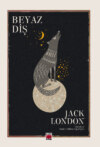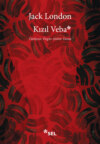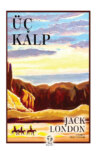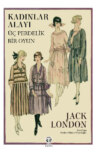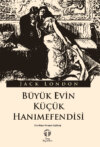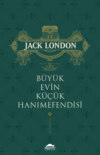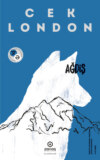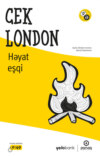Kitabı oku: «Revolution, and Other Essays», sayfa 7
THE HOUSE BEAUTIFUL
Speaking of homes, I am building one now, and I venture to assert that very few homes have received more serious thought in the planning. Let me tell you about it. In the first place, there will be no grounds whatever, no fences, lawns, nor flowers. Roughly, the dimensions will be forty-five feet by fifteen. That is, it will be fifteen feet wide at its widest – and, if you will pardon the bull, it will be narrower than it is wide.
The details must submit to the general plan of economy. There will be no veranda, no porch entrances, no grand staircases. I’m ashamed to say how steep the stairways are going to be. The bedrooms will be seven by seven, and one will be even smaller. A bedroom is only good to sleep in, anyway. There will be no hallway, thank goodness. Rooms were made to go through. Why a separate passage for traffic?
The bath-room will be a trifle larger than the size of the smallest bath-tub – it won’t require so much work to keep in order. The kitchen won’t be very much larger, but this will make it easy for the cook. In place of a drawing-room, there will be a large living-room – fourteen by six. The walls of this room will be covered with books, and it can serve as library and smoking-room as well. Then, the floor-space not being occupied, we shall use the room as a dining-room. Incidentally, such a room not being used after bedtime, the cook and the second boy can sleep in it. One thing that I am temperamentally opposed to is waste, and why should all this splendid room be wasted at night when we do not occupy it?
My ideas are cramped, you say? – Oh, I forgot to tell you that this home I am describing is to be a floating home, and that my wife and I are to journey around the world in it for the matter of seven years or more. I forgot also to state that there will be an engine-room in it for a seventy-horse-power engine, a dynamo, storage batteries, etc.; tanks for water to last long weeks at sea; space for fifteen hundred gallons of gasolene, fire extinguishers, and life-preservers; and a great store-room for food, spare sails, anchors, hawsers, tackles, and a thousand and one other things.
Since I have not yet built my land house, I haven’t got beyond a few general ideas, and in presenting them I feel as cocksure as the unmarried woman who writes the column in the Sunday supplement on how to rear children. My first idea about a house is that it should be built to live in. Throughout the house, in all the building of it, this should be the paramount idea. It must be granted that this idea is lost sight of by countless persons who build houses apparently for every purpose under the sun except to live in them.
Perhaps it is because of the practical life I have lived that I worship utility and have come to believe that utility and beauty should be one, and that there is no utility that need not be beautiful. What finer beauty than strength – whether it be airy steel, or massive masonry, or a woman’s hand? A plain black leather strap is beautiful. It is all strength and all utility, and it is beautiful. It efficiently performs work in the world, and it is good to look upon. Perhaps it is because it is useful that it is beautiful. I do not know. I sometimes wonder.
A boat on the sea is beautiful. Yet it is not built for beauty. Every graceful line of it is a utility, is designed to perform work. It is created for the express purpose of dividing the water in front of it, of gliding over the water beneath it, of leaving the water behind it – and all with the least possible wastage of stress and friction. It is not created for the purpose of filling the eye with beauty. It is created for the purpose of moving through the sea and over the sea with the smallest resistance and the greatest stability; yet, somehow, it does fill the eye with its beauty. And in so far as a boat fails in its purpose, by that much does it diminish in beauty.
I am still a long way from the house I have in my mind some day to build, yet I have arrived somewhere. I have discovered, to my own satisfaction at any rate, that beauty and utility should be one. In applying this general idea to the building of a house, it may be stated, in another and better way; namely, construction and decoration must be one. This idea is more important than the building of the house, for without the idea the house so built is certain to be an insult to intelligence and beauty-love.
I bought a house in a hurry in the city of Oakland some time ago. I do not live in it. I sleep in it half a dozen times a year. I do not love the house. I am hurt every time I look at it. No drunken rowdy or political enemy can insult me so deeply as that house does. Let me tell you why. It is an ordinary two-storey frame house. After it was built, the criminal that constructed it nailed on, at the corners perpendicularly, some two-inch fluted planks. These planks rise the height of the house, and to a drunken man have the appearance of fluted columns. To complete the illusion in the eyes of the drunken man, the planks are topped with wooden Ionic capitals, nailed on, and in, I may say, bas-relief.
When I analyze the irritation these fluted planks cause in me, I find the reason in the fact that the first rule for building a house has been violated. These decorative planks are no part of the construction. They have no use, no work to perform. They are plastered gawds that tell lies that nobody believes. A column is made for the purpose of supporting weight; this is its use. A column, when it is a utility, is beautiful. The fluted wooden columns nailed on outside my house are not utilities. They are not beautiful. They are nightmares. They not only support no weight, but they themselves are a weight that drags upon the supports of the house. Some day, when I get time, one of two things will surely happen. Either I’ll go forth and murder the man who perpetrated the atrocity, or else I’ll take an axe and chop off the lying, fluted planks.
A thing must be true, or it is not beautiful, any more than a painted wanton is beautiful, any more than a sky-scraper is beautiful that is intrinsically and structurally light and that has a false massiveness of pillars plastered on outside. The true sky-scraper is beautiful – and this is the reluctant admission of a man who dislikes humanity-festering cities. The true sky-scraper is beautiful, and it is beautiful in so far as it is true. In its construction it is light and airy, therefore in its appearance it must be light and airy. It dare not, if it wishes to be beautiful, lay claim to what it is not. And it should not bulk on the city-scape like Leviathan; it should rise and soar, light and airy and fairylike.
Man is an ethical animal – or, at least, he is more ethical than any other animal. Wherefore he has certain yearnings for honesty. And in no way can these yearnings be more thoroughly satisfied than by the honesty of the house in which he lives and passes the greater part of his life.
They that dwelt in San Francisco were dishonest. They lied and cheated in their business life (like the dwellers in all cities), and because they lied and cheated in their business life, they lied and cheated in the buildings they erected. Upon the tops of the simple, severe walls of their buildings they plastered huge projecting cornices. These cornices were not part of the construction. They made believe to be part of the construction, and they were lies. The earth wrinkled its back for twenty-eight seconds, and the lying cornices crashed down as all lies are doomed to crash down. In this particular instance, the lies crashed down upon the heads of the people fleeing from their reeling habitations, and many were killed. They paid the penalty of dishonesty.
Not alone should the construction of a house be truthful and honest, but the material must be honest. They that lived in San Francisco were dishonest in the material they used. They sold one quality of material and delivered another quality of material. They always delivered an inferior quality. There is not one case recorded in the business history of San Francisco where a contractor or builder delivered a quality superior to the one sold. A seven-million-dollar city hall became thirty cents in twenty-eight seconds. Because the mortar was not honest, a thousand walls crashed down and scores of lives were snuffed out. There is something, after all, in the contention of a few religionists that the San Francisco earthquake was a punishment for sin. It was a punishment for sin; but it was not for sin against God. The people of San Francisco sinned against themselves.
An honest house tells the truth about itself. There is a house here in Glen Ellen. It stands on a corner. It is built of beautiful red stone. Yet it is not beautiful. On three sides the stone is joined and pointed. The fourth side is the rear. It faces the back yard. The stone is not pointed. It is all a smudge of dirty mortar, with here and there bricks worked in when the stone gave out. The house is not what it seems. It is a lie. All three of the walls spend their time lying about the fourth wall. They keep shouting out that the fourth wall is as beautiful as they. If I lived long in that house I should not be responsible for my morals. The house is like a man in purple and fine linen, who hasn’t had a bath for a month. If I lived long in that house I should become a dandy and cut out bathing – for the same reason, I suppose, that an African is black and that an Eskimo eats whale-blubber. I shall not build a house like that house.
Last year I started to build a barn. A man who was a liar undertook to do the stonework and concrete work for me. He could not tell the truth to my face; he could not tell the truth in his work. I was building for posterity. The concrete foundations were four feet wide and sunk three and one-half feet into the earth. The stone walls were two feet thick and nine feet high. Upon them were to rest the great beams that were to carry all the weight of hay and the forty tons of the roof. The man who was a liar made beautiful stone walls. I used to stand alongside of them and love them. I caressed their massive strength with my hands. I thought about them in bed, before I went to sheep. And they were lies.
Came the earthquake. Fortunately the rest of the building of the barn had been postponed. The beautiful stone walls cracked in all directions. I started, to repair, and discovered the whole enormous lie. The walls were shells. On each face were beautiful, massive stones – on edge. The inside was hollow. This hollow in some places was filled with clay and loose gravel. In other places it was filled with air and emptiness, with here and there a piece of kindling-wood or dry-goods box, to aid in the making of the shell. The walls were lies. They were beautiful, but they were not useful. Construction and decoration had been divorced. The walls were all decoration. They hadn’t any construction in them. “As God lets Satan live,” I let that lying man live, but – I have built new walls from the foundation up.
And now to my own house beautiful, which I shall build some seven or ten years from now. I have a few general ideas about it. It must be honest in construction, material, and appearance. If any feature of it, despite my efforts, shall tell lies, I shall remove that feature. Utility and beauty must be indissolubly wedded. Construction and decoration must be one. If the particular details keep true to these general ideas, all will be well.
I have not thought of many details. But here are a few. Take the bath-room, for instance. It shall be as beautiful as any room in the house, just as it will be as useful. The chance is, that it will be the most expensive room in the house. Upon that we are resolved – even if we are compelled to build it first, and to live in a tent till we can get more money to go on with the rest of the house. In the bath-room no delights of the bath shall be lacking. Also, a large part of the expensiveness will be due to the use of material that will make it easy to keep the bathroom clean and in order. Why should a servant toil unduly that my body may be clean? On the other hand, the honesty of my own flesh, and the square dealing I give it, are more important than all the admiration of my friends for expensive decorative schemes and magnificent trivialities. More delightful to me is a body that sings than a stately and costly grand staircase built for show. Not that I like grand staircases less, but that I like bath-rooms more.
I often regret that I was born in this particular period of the world. In the matter of servants, how I wish I were living in the golden future of the world, where there will be no servants – naught but service of love. But in the meantime, living here and now, being practical, understanding the rationality and the necessity of the division of labour, I accept servants. But such acceptance does not justify me in lack of consideration for them. In my house beautiful their rooms shall not be dens and holes. And on this score I foresee a fight with the architect. They shall have bath-rooms, toilet conveniences, and comforts for their leisure time and human life – if I have to work Sundays to pay for it. Even under the division of labour I recognize that no man has a right to servants who will not treat them as humans compounded of the same clay as himself, with similar bundles of nerves and desires, contradictions, irritabilities, and lovablenesses. Heaven in the drawing-room and hell in the kitchen is not the atmosphere for a growing child to breathe – nor an adult either. One of the great and selfish objections to chattel slavery was the effect on the masters themselves.
And because of the foregoing, one chief aim in the building of my house beautiful will be to have a house that will require the minimum of trouble and work to keep clean and orderly. It will be no spick and span and polished house, with an immaculateness that testifies to the tragedy of drudge. I live in California where the days are warm. I’d prefer that the servants had three hours to go swimming (or hammocking) than be compelled to spend those three hours in keeping the house spick and span. Therefore it devolves upon me to build a house that can be kept clean and orderly without the need of those three hours.
But underneath the spick and span there is something more dreadful than the servitude of the servants. This dreadful thing is the philosophy of the spick and span. In Korea the national costume is white. Nobleman and coolie dress alike in white. It is hell on the women who do the washing, but there is more in it than that. The coolie cannot keep his white clothes clean. He toils and they get dirty. The dirty white of his costume is the token of his inferiority. The nobleman’s dress is always spotless white. It means that he doesn’t have to work. But it means, further, that somebody else has to work for him. His superiority is not based upon song-craft nor state-craft, upon the foot-races he has run nor the wrestlers he has thrown. His superiority is based upon the fact that he doesn’t have to work, and that others are compelled to work for him. And so the Korean drone flaunts his clean white clothes, for the same reason that the Chinese flaunts his monstrous finger-nails, and the white man and woman flaunt the spick-and-spanness of their spotless houses.
There will be hardwood floors in my house beautiful. But these floors will not be polished mirrors nor skating-rinks. They will be just plain and common hardwood floors. Beautiful carpets are not beautiful to the mind that knows they are filled with germs and bacilli. They are no more beautiful than the hectic flush of fever, or the silvery skin of leprosy. Besides, carpets enslave. A thing that enslaves is a monster, and monsters are not beautiful.
The fireplaces in my house will be many and large. Small fires and cold weather mean hermetically-sealed rooms and a jealous cherishing of heated and filth-laden air. With large fire-places and generous heat, some windows may be open all the time, and without hardship all the windows can be opened every little while and the rooms flushed with clean pure air. I have nearly died in the stagnant, rotten air of other people’s houses – especially in the Eastern states. In Maine I have slept in a room with storm-windows immovable, and with one small pane five inches by six, that could be opened. Did I say slept? I panted with my mouth in the opening and blasphemed till I ruined all my chances of heaven.
For countless thousands of years my ancestors have lived and died and drawn all their breaths in the open air. It is only recently that we have begun to live in houses. The change is a hardship, especially on the lungs. I’ve got only one pair of lungs, and I haven’t the address of any repair-shop. Wherefore I stick by the open air as much as possible. For this reason my house will have large verandas, and, near to the kitchen, there will be a veranda dining-room. Also, there will be a veranda fireplace, where we can breathe fresh air and be comfortable when the evenings are touched with frost.
I have a plan for my own bedroom. I spend long hours in bed, reading, studying, and working. I have tried sleeping in the open, but the lamp attracts all the creeping, crawling, butting, flying, fluttering things to the pages of my book, into my ears and blankets, and down the back of my neck. So my bedroom shall be indoors.
But it will be, not be of, indoors. Three sides of it will be open. The fourth side will divide it from the rest of the house. The three sides will be screened against the creeping, fluttering things, but not against the good fresh air and all the breezes that blow. For protection against storm, to keep out the driving rain, there will be a sliding glass, so made that when not in use it will occupy small space and shut out very little air.
There is little more to say about this house. I am to build seven or ten years from now. There is plenty of time in which to work up all the details in accord with the general principles I have laid down. It will be a usable house and a beautiful house, wherein the æsthetic guest can find comfort for his eyes as well as for his body. It will be a happy house – or else I’ll burn it down. It will be a house of air and sunshine and laughter. These three cannot be divorced. Laughter without air and sunshine becomes morbid, decadent, demoniac. I have in me a thousand generations. Laughter that is decadent is not good for these thousand generations.
Glen Ellen, California.July 1906.
THE GOLD HUNTERS OF THE NORTH
“Where the Northern Lights come down a’ nights to dance on the houseless snow.”
“Ivan, I forbid you to go farther in this undertaking. Not a word about this, or we are all undone. Let the Americans and the English know that we have gold in these mountains, then we are ruined. They will rush in on us by thousands, and crowd us to the wall – to the death.”
So spoke the old Russian governor, Baranov, at Sitka, in 1804, to one of his Slavonian hunters, who had just drawn from his pocket a handful of golden nuggets. Full well Baranov, fur trader and autocrat, understood and feared the coming of the sturdy, indomitable gold hunters of Anglo-Saxon stock. And thus he suppressed the news, as did the governors that followed him, so that when the United States bought Alaska in 1867, she bought it for its furs and fisheries, without a thought of its treasures underground.
No sooner, however, had Alaska become American soil than thousands of our adventurers were afoot and afloat for the north. They were the men of “the days of gold,” the men of California, Fraser, Cassiar, and Cariboo. With the mysterious, infinite faith of the prospector, they believed that the gold streak, which ran through the Americas from Cape Horn to California, did not “peter out” in British Columbia. That it extended farther north, was their creed, and “Farther North” became their cry. No time was lost, and in the early seventies, leaving the Treadwell and the Silver Bow Basin to be discovered by those who came after, they went plunging on into the white unknown. North, farther north, they struggled, till their picks rang in the frozen beaches of the Arctic Ocean, and they shivered by driftwood fires on the ruby sands of Nome.
But first, in order that this colossal adventure may be fully grasped, the recentness and the remoteness of Alaska must be emphasized. The interior of Alaska and the contiguous Canadian territory was a vast wilderness. Its hundreds of thousands of square miles were as dark and chartless as Darkest Africa. In 1847, when the first Hudson Bay Company agents crossed over the Rockies from the Mackenzie to poach on the preserves of the Russian Bear, they thought that the Yukon flowed north and emptied into the Arctic Ocean. Hundreds of miles below, however, were the outposts of the Russian traders. They, in turn, did not know where the Yukon had its source, and it was not till later that Russ and Saxon learned that it was the same mighty stream they were occupying. And a little over ten years later, Frederick Whymper voyaged up the Great Bend to Fort Yukon under the Arctic Circle.
From fort to fort, from York Factory on Hudson’s Bay to Fort Yukon in Alaska, the English traders transported their goods – a round trip requiring from a year to a year and a half. It was one of their deserters, in 1867, escaping down the Yukon to Bering Sea, who was the first white man to make the North-west Passage by land from the Atlantic to the Pacific. It was at this time that the first accurate description of a fair portion of the Yukon was given by Dr. W. H. Ball, of the Smithsonian Institution. But even he had never seen its source, and it was not given him to appreciate the marvel of that great natural highway.
No more remarkable river in this one particular is there in the world; taking its rise in Crater Lake, thirty miles from the ocean, the Yukon flows for twenty-five hundred miles, through the heart of the continent, ere it empties into the sea. A portage of thirty miles, and then a highway for traffic one tenth the girth of the earth!
As late as 1869, Frederick Whymper, fellow of the Royal Geographical Society, stated on hearsay that the Chilcat Indians were believed occasionally to make a short portage across the Coast Range from salt water to the head-reaches of the Yukon. But it remained for a gold hunter, questing north, ever north, to be first of all white men to cross the terrible Chilcoot Pass, and tap the Yukon at its head. This happened only the other day, but the man has become a dim legendary hero. Holt was his name, and already the mists of antiquity have wrapped about the time of his passage. 1872, 1874, and 1878 are the dates variously given – a confusion which time will never clear.
Holt penetrated as far as the Hootalinqua, and on his return to the coast reported coarse gold. The next recorded adventurer is one Edward Bean, who in 1880 headed a party of twenty-five miners from Sitka into the uncharted land. And in the same year, other parties (now forgotten, for who remembers or ever hears the wanderings of the gold hunters?) crossed the Pass, built boats out of the standing timber, and drifted down the Yukon and farther north.
And then, for a quarter of a century, the unknown and unsung heroes grappled with the frost, and groped for the gold they were sure lay somewhere among the shadows of the Pole. In the struggle with the terrifying and pitiless natural forces, they returned to the primitive, garmenting themselves in the skins of wild beasts, and covering their feet with the walrus mucluc and the moosehide moccasin. They forgot the world and its ways, as the world had forgotten them; killed their meat as they found it; feasted in plenty and starved in famine, and searched unceasingly for the yellow lure. They crisscrossed the land in every direction, threaded countless unmapped rivers in precarious birch-bark canoes, and with snowshoes and dogs broke trail through thousands of miles of silent white, where man had never been. They struggled on, under the aurora borealis or the midnight sun, through temperatures that ranged from one hundred degrees above zero to eighty degrees below, living, in the grim humour of the land, on “rabbit tracks and salmon bellies.”
To-day, a man may wander away from the trail for a hundred days, and just as he is congratulating himself that at last he is treading virgin soil, he will come upon some ancient and dilapidated cabin, and forget his disappointment in wonder at the man who reared the logs. Still, if one wanders from the trail far enough and deviously enough, he may chance upon a few thousand square miles which he may have all to himself. On the other hand, no matter how far and how deviously he may wander, the possibility always remains that he may stumble, not alone upon a deserted cabin, but upon an occupied one.
As an instance of this, and of the vastness of the land, no better case need be cited than that of Harry Maxwell. An able seaman, hailing from New Bedford, Massachusetts, his ship, the brig Fannie E. Lee, was pinched in the Arctic ice. Passing from whaleship to whaleship, he eventually turned up at Point Barrow in the summer of 1880. He was north of the Northland, and from this point of vantage he determined to pull south of the interior in search of gold. Across the mountains from Fort Macpherson, and a couple of hundred miles eastward from the Mackenzie, he built a cabin and established his headquarters. And here, for nineteen continuous years, he hunted his living and prospected. He ranged from the never opening ice to the north as far south as the Great Slave Lake. Here he met Warburton Pike, the author and explorer – an incident he now looks back upon as chief among the few incidents of his solitary life.
When this sailor-miner had accumulated $20,000 worth of dust he concluded that civilization was good enough for him, and proceeded “to pull for the outside.” From the Mackenzie he went up the Little Peel to its headwaters, found a pass through the mountains, nearly starved to death on his way across to the Porcupine Hills, and eventually came out on the Yukon River, where he learned for the first time of the Yukon gold hunters and their discoveries. Yet for twenty years they had been working there, his next-door neighbours, virtually, in a land of such great spaces. At Victoria, British Columbia, previous to his going east over the Canadian Pacific (the existence of which he had just learned), he pregnantly remarked that he had faith in the Mackenzie watershed, and that he was going back after he had taken in the World’s Fair and got a whiff or two of civilization.
Faith! It may or may not remove mountains, but it has certainly made the Northland. No Christian martyr ever possessed greater faith than did the pioneers of Alaska. They never doubted the bleak and barren land. Those who came remained, and more ever came. They could not leave. They “knew” the gold was there, and they persisted. Somehow, the romance of the land and the quest entered into their blood, the spell of it gripped hold of them and would not let them go. Man after man of them, after the most terrible privation and suffering, shook the muck of the country from his moccasins and departed for good. But the following spring always found him drifting down the Yukon on the tail of the ice jams.
Jack McQuestion aptly vindicates the grip of the North. After a residence of thirty years he insists that the climate is delightful, and declares that whenever he makes a trip to the States he is afflicted with home-sickness. Needless to say, the North still has him and will keep tight hold of him until he dies. In fact, for him to die elsewhere would be inartistic and insincere. Of three of the “pioneer” pioneers, Jack McQuestion alone survives. In 1871, from one to seven years before Holt went over Chilcoot, in the company of Al Mayo and Arthur Harper, McQuestion came into the Yukon from the North-west over the Hudson Bay Company route from the Mackenzie to Fort Yukon. The names of these three men, as their lives, are bound up in the history of the country, and so long as there be histories and charts, that long will the Mayo and McQuestion rivers and the Harper and Ladue town site of Dawson be remembered. As an agent of the Alaska Commercial Company, in 1873, McQuestion built Fort Reliance, six miles below the Klondike River. In 1898 the writer met Jack McQuestion at Minook, on the Lower Yukon. The old pioneer, though grizzled, was hale and hearty, and as optimistic as when he first journeyed into the land along the path of the Circle. And no man more beloved is there in all the North. There will be great sadness there when his soul goes questing on over the Last Divide – “farther north,” perhaps – who can tell?
Frank Dinsmore is a fair sample of the men who made the Yukon country. A Yankee, born, in Auburn, Maine, the Wanderlust early laid him by the heels, and at sixteen he was heading west on the trail that led “farther north.” He prospected in the Black Hills, Montana, and in the Coeur d’Alene, then heard a whisper of the North, and went up to Juneau on the Alaskan Panhandle. But the North still whispered, and more insistently, and he could not rest till he went over Chilcoot, and down into the mysterious Silent Land. This was in 1882, and he went down the chain of lakes, down the Yukon, up the Pelly, and tried his luck on the bars of McMillan River. In the fall, a perambulating skeleton, he came back over the Pass in a blizzard, with a rag of shirt, tattered overalls, and a handful of raw flour.
But he was unafraid. That winter he worked for a grubstake in Juneau, and the next spring found the heels of his moccasins turned towards salt water and his face toward Chilcoot. This was repeated the next spring, and the following spring, and the spring after that, until, in 1885, he went over the Pass for good. There was to be no return for him until he found the gold he sought.

